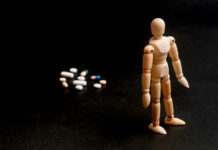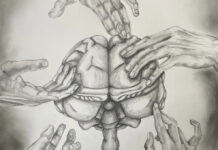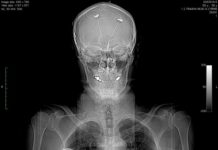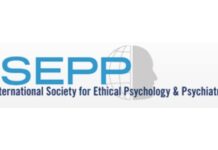Making Music, Healing Souls
The healing power of communal singing is at the heart of two organizations in England and Ireland: Sing Your Heart Out and 49 North Street.
Maryland Enacts a “Draconian” Assisted Outpatient Treatment Program
Advocates vow to keep resisting psychiatric force, fighting for rights-based supports
Diving into Your Soul: Lessons from “Queer Eye”
"Queer Eye" has a fresh, therapeutic twist: Installment after installment, it sends the repeated messages: Take care of yourself. Be kind to yourself. You’re beautiful. You’re good. We love you. Love yourself. Or, in the words of Van Ness: Yass, queen!
The False Memory Syndrome at 30: How Flawed Science Turned into Conventional Wisdom ...
Soon after states finally began providing adults who remembered childhood abuse with the legal standing to sue, the FMSF began waging a PR campaign to discredit their memories—in both courtrooms and in the public mind.
Dramatic Rise in Police Interventions on 988 Callers
New data reveals that four times as many callers to 988 as previously publicly claimed are getting visited by police or emergency medical services.
The Dying of the Light: Norway’s “Medication-Free” Services for Psychotic Patients Are Fading Away
Despite their successful outcomes, Norwegian non-coercive and medication-free programs are being threatened with closure.
Screening for Bipolar: Have You Ever Been “Unusually Happy” for More than a Week?
A new questionnaire funded by AbbVie conflates antidepressant side effects with bipolar disorder and doesn’t actually meet the criteria for being considered “screening.”
Suicide in the Age of Prozac
During the past twenty years, the American Foundation for Suicide Prevention and American psychiatry have adopted a "medicalized" approach to preventing suicide, claiming that antidepressants are protective against suicide. Yet, the suicide rate in the United States has increased 30% since 2000, a time of rising usage of antidepressants. A review of studies of the effects of mental health treatment and antidepressants on suicide reveals why this medicalized approach has not only failed, but pushed suicide rates higher.
Psychiatry, Fraud, and the Case for a Class-Action Lawsuit
For decades, psychiatry committed medical fraud when it told the public that antidepressants fixed a chemical imbalance in the brain.
Teen Arts Exhibition: Beyond Labels And Meds: What It Feels Like To Be Me
28 teen artists share the power of their creativity in this collection of profoundly moving, courageous, and beautiful artwork.
The Failure of “Spit For Science”: No Genetic or Neurological Pathways for Substance Abuse
Despite finding no meaningful correlation between genes and substance use, high-profile geneticists misleadingly conveyed optimistic results.
Dismissing the “Human Experience”: College Students Feel Unseen by the Medical Model of Mental...
In conversations with college students and recent graduates from across the country and around the world, they described feeling dismissed by views of mental health that narrow their experiences to individual medical problems.
Criticisms That Establishment Psychiatry Can and Cannot Tolerate
Criticism that uniquely applies to establishment psychiatry but not to medicine in general threatens its existential legitimacy, and is not tolerated.
In the Courts, a Partial Win for Informed Consent and ECT Justice
Price Hancock views the Thelen verdict as a partial win. "The jury agreed that the manufacturer 'failed to warn.’ That's huge. It's a step in the right direction."
Beyond Labels and Meds—Closer Look: HoJin Kwak
This is the first of 4 spotlight interviews with some of the talented youth behind the pieces in MIA's art exhibition. HoJin states: "The original idea for my drawing started with the brain. The complexity of its sudden twists and curves fascinates me."
The TikTokification of Mental Health on Campus
Many people view their social media feeds as reflections of their identities—and when posts center on a specific diagnosis, it can feel like the platform is diagnosing them.
Crisis on Campus: Mental Health Counselors Are Feeling the Crush
A dramatic rise in demand for college mental health services has led to counselors feeling burned out. Counseling center directors are looking for solutions.
The Fight Against Involuntary Commitment: Are Protection & Advocacy Organizations Fulfilling Their Mission?
Protection and Advocacy organizations were designed as ground-breaking tools for fighting involuntary commitment and protecting patients’ rights. Are they fulfilling their promise? And will they survive Trump?
The Serotonin Zombie: Authors of New Study Try to Breathe New Life into the...
Despite new claims that their study provides "clear evidence" linking serotonin and depression, their data actually supports the opposite conclusion: serotonin levels did not correlate with depression.
Life Inside America’s Psychiatric Facilities During the Pandemic: Eyewitness Accounts
Insiders paint a picture of chaos and fear in public and private psychiatric hospitals across the country. "Now that she has been discharged, Sevigny is getting the truth out, just as the nurse asked her to do. She also plans to continue to organizing in her state, with and on behalf of those who continue to be subjected to dangerous conditions in the name of care."
Brain Implants: Spinning the Trial Results to Protect the Product
The published report of the Broaden Trial of Deep Brain Stimulation for Depression whitewashed the results: although the efficacy results were negative, the investigators concluded that the therapy still showed "promise", and adverse events suffered by the patients were downplayed or attributed to the disease, and not the treatment. An in-depth investigation of how the trial results were spun, and interviews with patients that tell of harm done.
Adverse Effects: The Perils of Deep Brain Stimulation for Depression
Hundreds of people have been given remote control deep brain stimulation implants for psychiatric disorders such as depression, OCD and Tourette’s. Yet DBS specialists still have no clue about its mechanisms of action and research suggests its hefty health and safety risks far outweigh benefits.
“Holy Shit!” Psychiatry’s Cognitive Dissonance on Display
Even those who would seek to reform the profession of psychiatry cannot confront the reality that exists in the research literature
The New York Times Is Now Engulfed in the STAR*D Scandal
The New York Times published yet again the fraudulent result from the STAR*D trial. Will the mainstream media ever tell of this scandal?
Where Critical Psychiatry Meets Community Resilience
The International Society for Ethical Psychology and Psychiatry had the clout to draw a stellar line-up of presenters to its recent conference, including internationally prominent critics like David Healy, Peter Gøtzsche, Robert Whitaker and Allen Frances. There were lots of learnings and even some tense discussions, but one of the most intriguing aspects of the entire conference was the way in which scientific and social issues became deeply intertwined, especially when presenters reached for better pathways forward.

































